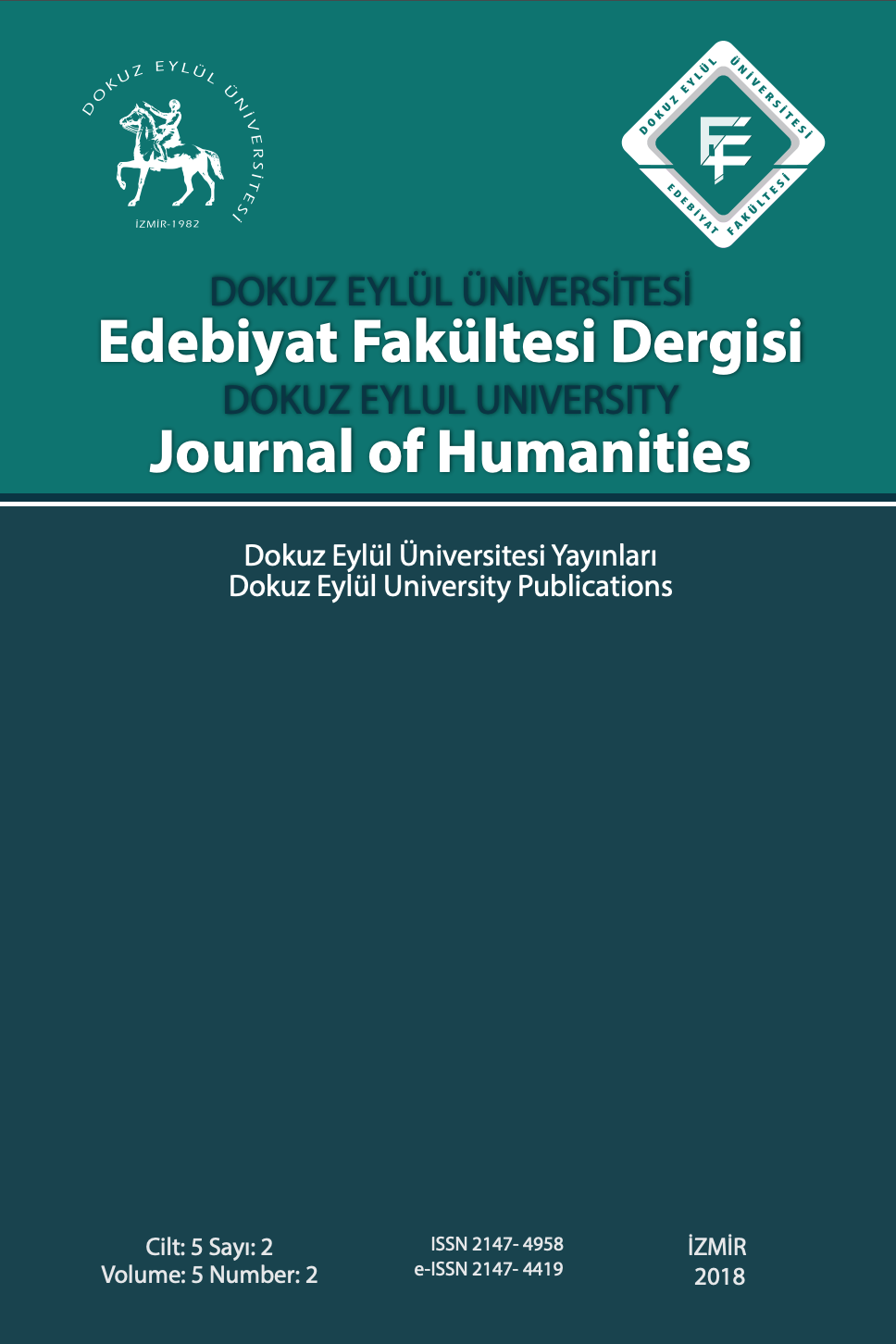KAFKA’NIN “BİR KÖY DOKTORU” HİKÂYESİNDE TEKİNSİZ EVLER VE EVSİZLİK
Kafka, “Bir Köy Doktoru”, Evsizlik, Tekinsizlik, Kamusallık, Mahremiyet
THE UNCANNY HOMES AND HOMELESSNESS IN KAFKA’S “A COUNTRY DOCTOR”
Kafka, “A Country Doctor, ” homelessness, uncanny, public, private,
___
- Bluma, Goldstein (1968). “Franz Kafka’s Ein Landarzt: A Study in Failure”. Deutsche Vierteljahrsschrift fur Literaturwissenschaft und Geistesgeschichte. 42 (Spec. iss), 745-759.
- Brancato, J. John (1978). “Kafka’s ‘A Country Doctor: A Tale for Our Time”. Studies in Short Fiction, 15 (Spring), 173-176.
- Bregman, Etti Golomb (1989). “No Rose Without Thorns: Ambivalence in Kafka’s ‘A Country Doctor’”. American Imago, 46(1), 77-84.
- Freud, Sigmund (1950). An Autobiographical Study. In The Standard Edition of the Complete Psychological Works of Sigmund Freud. ed. James Strachey. London: The Hogarth Press.
- Freud, Sigmund (1919). “The Uncanny”, In The Standard Edition of the Complete Psychological Works of Sigmund Freud, Vol: 17. ed. James Strachey. London: The Hogarth Press.
- Guth, P. Hans (1965). “Symbol and Contextual Restraint: Kafka’s ‘Country Doctor”. PMLA, 80(4), 427-431.
- Kafka, Franz (2007.07.03). “Ein Landarzt”. https://www.gutenberg.org/files/21989/21989-h/21989-h.htm#Ein_Landarzt.
- Kafka, Franz. “A Country Doctor” (1919). http://www.kafka-online.info/a-country-doctor.html. Manson, Aaron (2005). “A Theology of Illness: Franz Kafka’s ‘A Country Doctor”. Literature and Medicine, 24 (2), 297-314.
- Rochelle,Tobias (2000). “A Doctor’s Odyssey: Sickness and Health in Kafka’s ‘Ein Landarzt’”. Germanic Review. 75 (2), 120-31.
- Stockholder, Katherine (1978). “A Country Doctor: The Narrator as Dreamer”. American Imago. 35(4), 331-346.
- ISSN: 2147-4958
- Yayın Aralığı: 2
- Başlangıç: 2011
- Yayıncı: Dokuz Eylul Üniversitesi Matbası
JAPONCA VE TÜRKÇEDEKİ HAYRET İFADELERİ ÜZERİNE
PANDEMONIUM’DA TANRIYI OYNAYAN VAİZLER
Hacer GÖZEN, Timuçin Buğra EDMAN
MUGBY JUNCTION'DA DEMİRYOLLARI VE DEMİRYOLU ÇALIŞANLARI
KAFKA’NIN “BİR KÖY DOKTORU” HİKÂYESİNDE TEKİNSİZ EVLER VE EVSİZLİK
GESTALT BAKIŞ AÇISIYLA EDEBİYAT ELEŞTİRİSİ - BİR UYGULAMA: SERVİ, SABAHATTİN ALİ
HASAN BOĞULDU ÖYKÜSÜ’NÜN GÖSTERGEBİLİM KİPLİKLERİ AÇISINDAN İNCELENMESİ
Söylem, Söylem Çözümlemesi ve Eleştirel Söylem Çözümlemesi: Tanımları ve Kapsamları.
Gülsüm Songül ERCAN, Pınar DANIŞ
AYHAN BOZFIRAT’IN YAPITLARINDA SINIFSAL EŞİTSİZLİK VE ADALET İLİŞKİSİ
